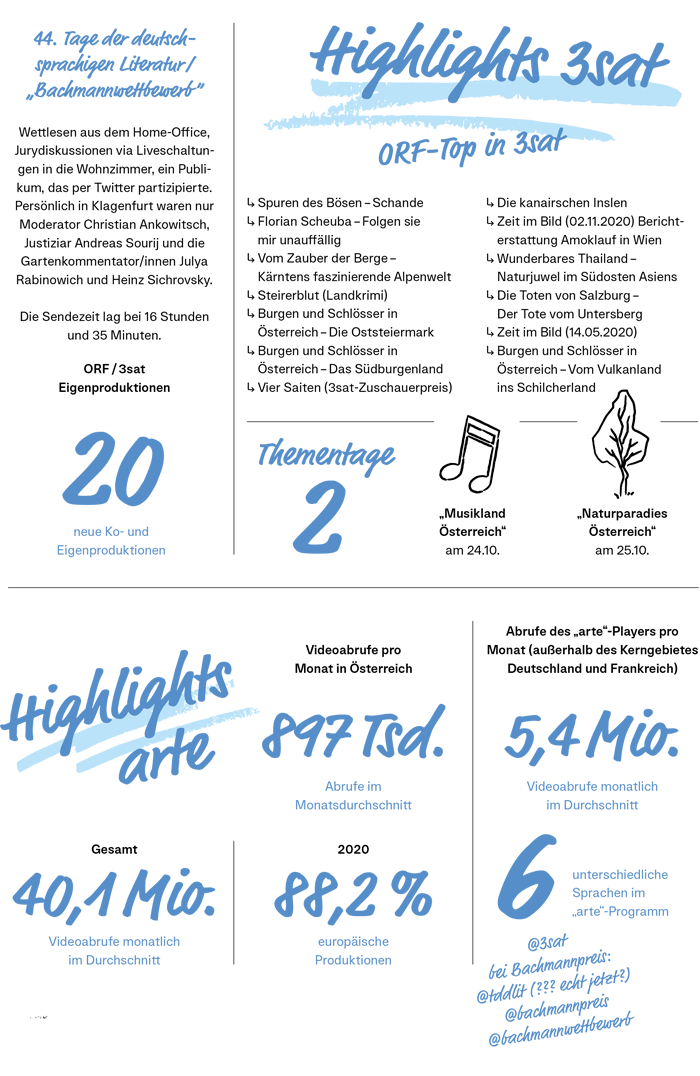Back to overview
Petra Gruber, responsible for 3sat and arte
#84 Europe: 3sat and arte as pioneers?
'Making good programs that find their way to the audience' - that's how ZDF program director and 3sat boss Norbert Himmler defines the challenge currently facing all public broadcasters in Europe. We are currently experiencing the biggest changes in the media world for decades. Classic linear television is increasingly being replaced by streaming services and global platforms, and audiences are informing themselves more than ever before via social media services. Our future viability will depend on how we succeed in reaching younger users in particular under these changed conditions and in communicating our content - where the audience is. ORF is currently undergoing a comprehensive transformation process from public service broadcaster to multimedia public service platform. However, such platforms have their very own rules. User-friendliness, convenience and ease of use - these are the fronts on which the battle will be fought. If it takes more than five clicks to find the program you want, you'll be frustrated and gone. If getting into a movie, clip or story doesn't pull it off - on to the next one! Public broadcasters can no longer rest on their 'main assets' such as quality, credibility, analysis and depth. Global players like Amazon and Netflix have long since caught up and hired the best creative minds in the industry. High-quality and precise content is produced for the audience with maximum ease of use. To believe that the quality of one's own programs is still sufficient and that one can rely on it is a fallacy that could come back to haunt one. Each platform has its own laws and produces its own genres. It must be produced in a way that is suitable for the platform and offered in a way that is suitable for the user. If these rules are not observed, it will not be possible to operate successfully in the respective 'vectors'. Employees must be specially trained and continuously educated - the new (social) media world is changing rapidly and what was 'in' today may be passé tomorrow. It is also a fallacy to believe that the new platforms and playout channels can be supplied with 'by-products' of the linear channels - here it is necessary to build up new and own teams in a targeted manner, otherwise the connection will be missed. Multi-channel strategies or hybrid strategies are toothless if the right content is missing. In the future, public broadcasters will also have to position themselves as attractive employers for young creative talent. But the wheel doesn't have to be completely reinvented. Our international broadcasting cooperations with 3sat and ARTE already offer the opportunity to join forces with partner broadcasters and exploit synergies. Because of the different legal situation in other countries, it was possible to take innovative steps there earlier than here and gain experience with new technologies and distribution channels. ORF can build on this and join forces with its partner broadcasters. In this way, mergers can create not only larger media libraries that are more attractive to audiences, but also a new 'European Public Sphere' as a counterweight to the big global players.





